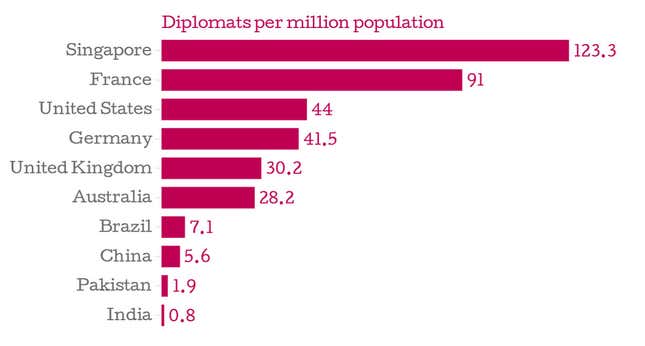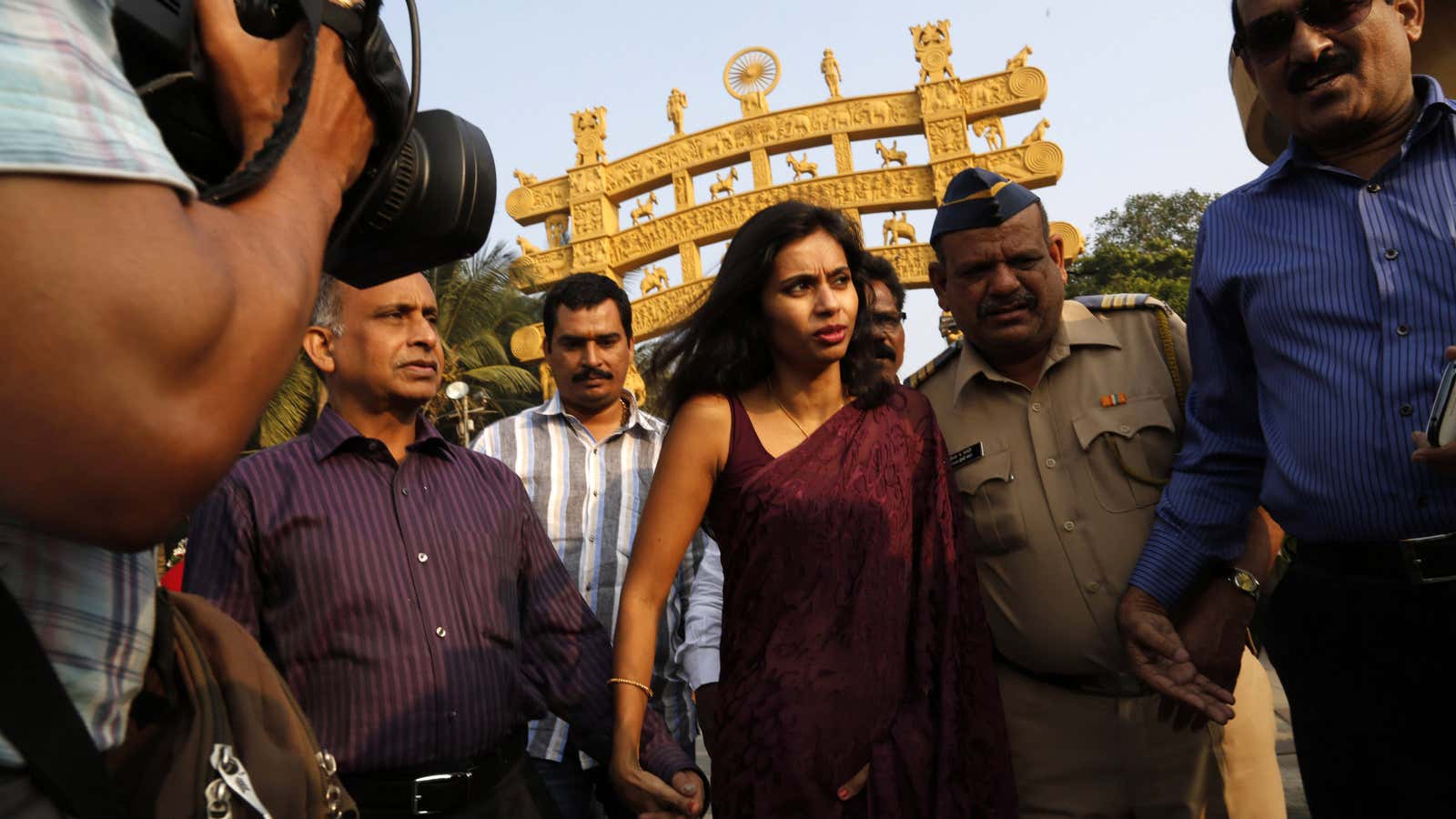NEW DELHI, India—The arrest of one Indian diplomat has captivated the world’s attention and led to a standoff with the US. But a broader look at India’s foreign service highlights another problem: Its diplomatic corps is tiny compared to the rest of the world.
The easiest quantitative indicator of diplomatic outreach is the number of diplomats a country has for every million people. Based on data from the countries themselves, my company, How India Lives, examined this number in 10 countries, a mix of developing and developed, some of strategic significance to India. Of the lot, India has the fewest number of diplomats. Pakistan has twice as many. China—the only other nation besides India with more than 1 billion people—has six times as many.

It is clear India’s numbers are not commensurate with its growing economy, diaspora, or trade. Last year, the Economist described described Indian Foreign Service officers as “ridiculously feeble,” and likened their numbers to Singapore.
To take the comparison a step further, India’s GDP is about seven times that of Singapore, its population is 250 times Singapore’s 5.3 million. India has 180 missions abroad, Singapore has 43. Yet India has just 950 diplomats, against Singapore’s 639.
Indeed, Singapore can be seen as an anomaly as the city-state (not a democracy like India) has positioned itself as a global hub of trade; its economy inextricably woven to that construct, it needs to represent itself in many countries.
But India, the world’s eighth largest economy, compared to other countries hardly fares much better. For example, both India and France rely on foreign trade for more than half of GDP, respectively. Yet France has six times as many diplomats as India.
It is worth taking a step back and defining precisely what a diplomat actually does. In the case of India, officers of the IFS are both posted in India and missions abroad. They negotiate visa rights, conduct trade talks, and engage in back-channel conversations on security issues.
They could be doing a lot more—perhaps if there were more of them. Daniel Markey, a former US diplomat and senior fellow at the Council on Foreign Relations, writes in an oft-cited paper:
India’s own foreign policy establishment hinders the country from achieving great-power status … The IFS is small, hobbled by its selection process and inadequate mid-career training, and tends not to make use of outside expertise…
The IFS is the toughest of all bureaucratic services in India to crack and land employment, with a year-long selection process and very tall odds. Out of the 472,290 who sat for the civil services exam in 2012, just 910 candidates were selected—a hire rate of 0.2%; of them, 40 IFS officers were selected. Those odds could be a lot better if the number of diplomats increased to meet the needs of the global power India purports to be.
